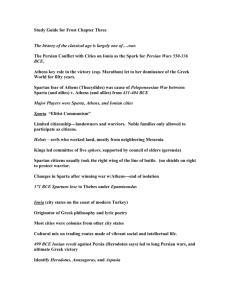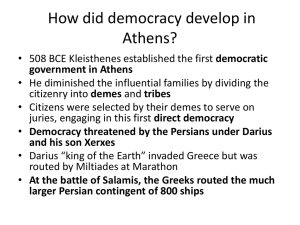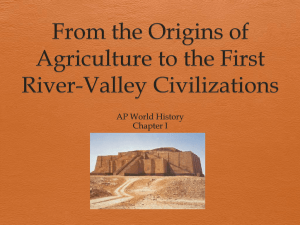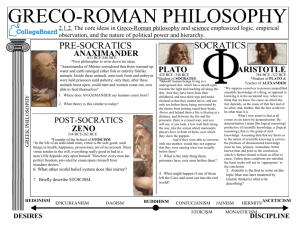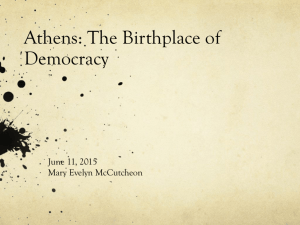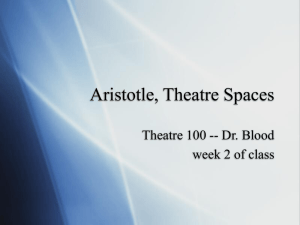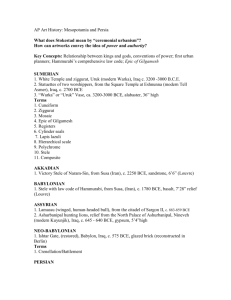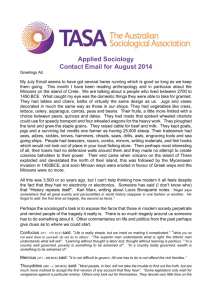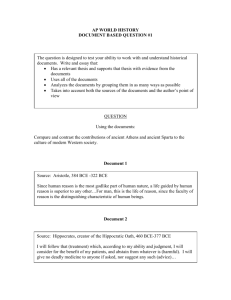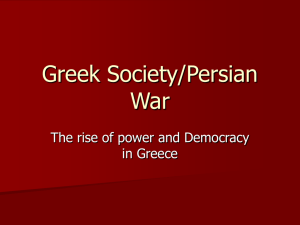Chapter 4 Lecture - Iran and Greece
advertisement
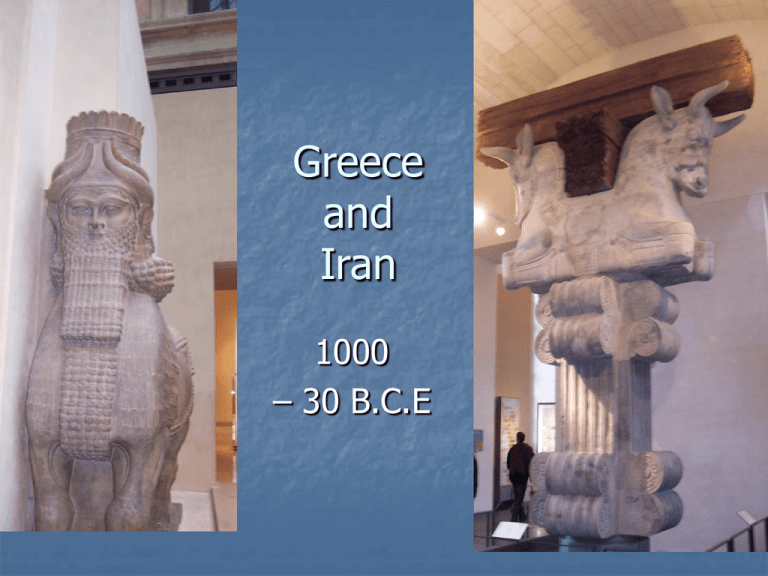
Greece and Iran 1000 – 30 B.C.E State-building, Expansion and Conflict Medes Priests Assyrians Cyrus 550 BCE Warriors Social Class distinctions Cambyses 530 BCE Further expansion Peasants Which of the following should we consider as a more important Persian step in Empire Building? Expansion Administration Darius I - 522 BCE Satrapy System Twenty total Directly connected to royal family Decentralized Collect and send tribute Successes Royal roads Postal service Codifying of laws Incorporation of local laws into justice system Royal judges Relatively peaceful Government supplied food for workers Building of Persepolis as a cultural centre Susa (Elam) established as Admin. centre Issues Royal tribute hoarding Leads to a economic collapse across much of Empire by 4th BCE Medians pushed out of power positions King as aloof; people as “my slaves” Strong connection of practices to Mesopotamia High cost of King’s entourage Huge tracks of land owned by king Based on the successes and issues of Darius’ rule and the negative attitude of the Greeks towards the Persians, why don’t we see more revolts taking place across the Empire? Persepolis Development and Interaction of Cultures Religion Zoroastrianism Mandate from Heaven Philosophies Water, fire, earth Polytheism Persian culture under Darius I borrows heavily from conquered peoples. To what extent is this true in regard to religion? It is said that Zorastriaism had a profound influence on Judaism and Christianity. Explain this connection. Greeks Resource poor – needed trade Ecological zone – migration Isolated polis Phoenicians (800 BCE) = new ideas (alphabet) Rising population – urban centers Structures Acropolis/agora Hoplites – farmers Colonists Coins Tyrant Oligarchy Democracy King Aristocracy Free Peasants/Merchants/Craftsmen Peasants Debt - Slaves Compare and contrast Greek and Persian civilizations politically. (What was necessary for each system to succeed?) Culture (Beliefs) Anthropomorphic gods Public sacrifice Family Individual Pre – Socratic philosophers Logographers Herodotus (485 – 425 BCE) What social and intellectual factors contributed to the evolution of the heightened importance of the individual? Make a case for one of the following statements: Herodotus was the first real historian. Herodotus was NOT the first real historian. 7th c. BCE No colonists – invasion of Messenia Helots Military preparedness Time warp Peloponnesian League Sparta Big territory, population 594 BCE – Solon: wealth linked to democracy – expanded 460s – 450s – Pericles: Assembly, Council of 500, People’s Courts Athens Why were the two polis of Sparta and Athens so different from one another? What accounted for those differences? Can a case be made that ancient Sparta was just as democratic as ancient Athens in the 7th – 5th centuries BCE? Why or why not?
